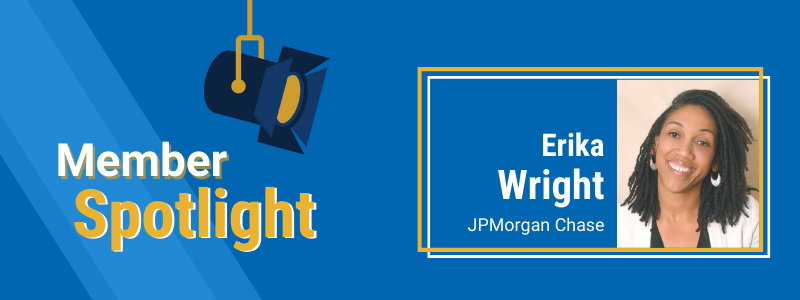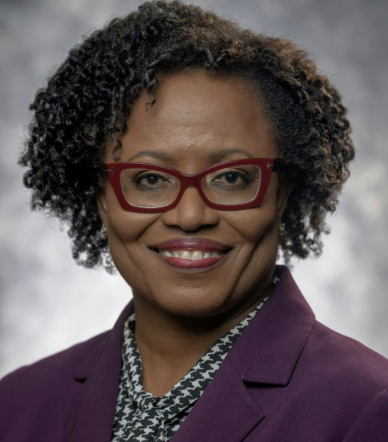 Meet our members! AFN’s greatest asset is our members—a diverse network of national, regional, and community-based foundations, financial institutions, and grantmakers—investing in advancing equitable wealth building and economic mobility. Check back each month and meet your peers!
Meet our members! AFN’s greatest asset is our members—a diverse network of national, regional, and community-based foundations, financial institutions, and grantmakers—investing in advancing equitable wealth building and economic mobility. Check back each month and meet your peers!
1: What is the mission of your organization and how is advancing equitable wealth building and economic mobility incorporated into the work?
We believe business has a responsibility to help strengthen communities and drive inclusive economies, in partnership with government and community leaders. Ultimately, our long-term business success depends on the success of the communities we serve and their economies. We are committed to being there for those who need us in good and tough times. This happens through our lines of business and also through our Foundation. Our philanthropic work is aligned with our business and advances best-practice strategies in careers and skills; community development; environmental sustainability; financial health and wealth creation; and business growth and entrepreneurship, all of which we believe to be key drivers of wealth building and economic mobility, especially in our most marginalized communities across the globe.
2: What are some of the permanent pivots you have made as a result of the COVID-19 pandemic and the current moment emphasizing the critical need for strategies that provide a range of support to women and Black, Latinx, Indigenous and Asian people and communities?
As the world faced the health and economic consequences of COVID-19, JPMorgan Chase worked to bring the full force of our core business and expertise to support our communities, employees, clients and customers affected by this unprecedented global crisis. Committed $350 million to support underserved small businesses, including Black and Latinx companies, $200 million to help underserved small businesses and nonprofits access low-cost capital through community partners, $50 million to address public health and long-term economic challenges resulting from COVID-19. Additionally, recognizing the disproportionate impact that the pandemic has had on Black and Latinx women, we evolved our AdvancingCities Challenge to source bold solutions that catalyze economic recovery and long-term prosperity for Black and Latina women, their families, and local economies.
s
3: What are some of the most significant gaps that you have identified that could help address economic equity?
Access to affordable housing is key to building wealth but is out of reach for far too many families – especially for Black, Hispanic and Latino households. Despite representing 77% of new households expected to form in the next decade, Black, Hispanic and Latino homeownership is less than 50% today. Black, Hispanic and Latino business owners face systemic barriers when it comes to growing and scaling their small businesses – including accessing capital, profitable supply markets, and strong culturally relevant technical assistance. To address economic inequality philanthropy and business must invest in products, funds, loans, community investments and policy reforms that address homeownership and small business challenges for communities of color.
4: Thinking about your previous answer, what do you see as the biggest barriers or challenges for philanthropy to address these gaps?
Making measurable gains on addressing wealth inequality and promoting economic equity will require strong collaboration across a diverse group of stakeholders that have not come together historically. It will also require significant reforms to policies and practices in systems that have been designed to perpetuate historical inequities, which makes change complex and challenging.
5: What have been some of the biggest benefits of being part of the Asset Funders Network?
The greatest benefits to participating in the Asset Funders Network by far have been the relationships built with funders both in the state of Louisiana and nationally; access to deep expertise, research and analysis that AFN brings as a national organization with a broad range of stakeholders; and the platform to learn and promote best-practices for wealth building in our communities.
s
6: What is your favorite online shop owned by women or people of color?
s
7: What is the last book you read?
Where the Crawdads Sing by Delia Owens
About Erika Wright, VP Global Philanthropy, JPMorgan Chase
JPMorgan Chase combines its business and policy expertise, capital and data to advance four universal pillars of opportunity: jobs and skills, small business expansion, neighborhood revitalization and financial health. We believe these are the essential ingredients for creating lasting impact for our communities, customers and employees. We are putting this model into action through significant, long-term and data-driven investments in communities around the world.
As a Program Officer I am responsible for leveraging the expertise of a broad array of local stakeholders – community members, nonprofits, public officials, private sector partners – and deep market knowledge, data and analysis to develop a cohesive multi-year grantmaking strategy that drives inclusive economic growth in Louisiana, Tennessee and Missouri.

